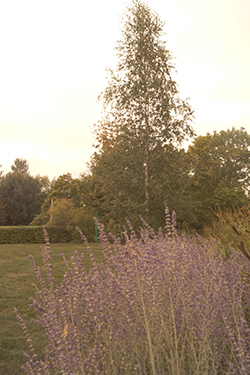
Centre for ageing and
biographical studies (CABS)
You are here
- Home
- Research
- Centres
- Ageing and Biographical Studies (CABS)
- History of the Centre for Ageing and Biographical Studies (CABS)
History of the Centre for Ageing and Biographical Studies (CABS)

The CABS research group emerged in 1995 from the team that had been working on the OU course ‘An Ageing Society’, to bring a focus on research which had at its core the lived experience of older people and of ageing. Professor Jaber (Jay) Gubruim, then of Florida University, and author of the classic Living and Dying at Murray Manor (1975) gave the opening public lecture, and over the years since, CABS has combined presentations of members’ own work with many invited lectures by other academics and practitioners within the CABS/CPA seminar series and at special events and conferences.
Some of the leading thinkers/researchers/writers on ageing have been members of CABS at one time or another, and there is not space here talk about all of them. Founder members included Joanna Bornat, Julia Johnson, Sheila Peace, Malcolm Johnson, Brian Gearing, and Pam Shakespeare. Stand-out previous publications include BIll’s extensive writing on ageism and age discrimination, Joanna’s work on oral histories and biographical methods, and Sheila’s writings on environmental gerontology. One of the strengths of CABS was (and is) the opportunity for interdisciplinary support and collaborations across sociology, health sciences, geography, history, psychology, social work, nursing, economics, and more, stretching our understandings of ageing as a social phenomenon. One such collaboration, for example, resulted in Residential Care Transformed: revising the last refuge (2010), a book by Julia Johnson, Sheena Rolph and Randal Smith that was awarded the then newly established British Academy Peter Townsend Policy Press Prize. The research for the book revisited Peter Townsend's classic study of residential care in England and Wales, The Last Refuge, published in 1962. With the help of a hundred older volunteer researchers, they traced what happened to the 173 homes that Townsend visited. They also revisited 20 of the surviving local authority, voluntary and private homes so as to compare them then and now. The book included some previously unpublished photographs from the Peter Townsend Collection which when set beside those taken in the early 21st century illustrated not only continuity and change in residential care, but also in visual representations of older people.
Over the years membership of CABS has changed as new members join and others leave, and therefore so has the focus of the research undertaken within the group, but we try to keep continuity through centring around the aims off CABS and remembering the many contributions to research that have gone before us, and that we still build on in terms of methods, theories, and approaches. Anniversary events in 2010 and 2015 gave us the opportunity to reflect not just on the group, but also on the changing nature of ageing and of gerontology itself, and whether biographical methods were still useful in challenging and changing practice. While research within CABS has expanded methodologically, for example to include large-scale quantitative studies, the continuance of participative, biographical, and reflexive approaches anchors the work of the group within both contemporary and historical contexts including thinking about the work that we do and why we do it: “…as well as many other virtues, biographical approaches give us the opportunity to revisit our own biographies and understand a little better the unfolding of history in our time” (Jill Reynolds, 2010).
Jill wrote this in a blog reporting on the 15th anniversary event. She had joined CABS as a research ‘home’ for her work on single women ageing, and on ageing without children. She thought a lot about the possible futures of women in this position, recording at one point a video ‘conversation’ with her much older self as away of thinking about the reality of personally becoming old. Jill was planning new research on the experiences of childless women in old age when she was diagnosed with terminal cancer. She decide to hold her ‘wakes’ while she was still alive, giving friends and family the time to reflect with her on her life and work and share stories while she was still with us. After Jill died in July 2012, CABS planted a tree in her memory close to the building where we all still meet together to talk about research.
